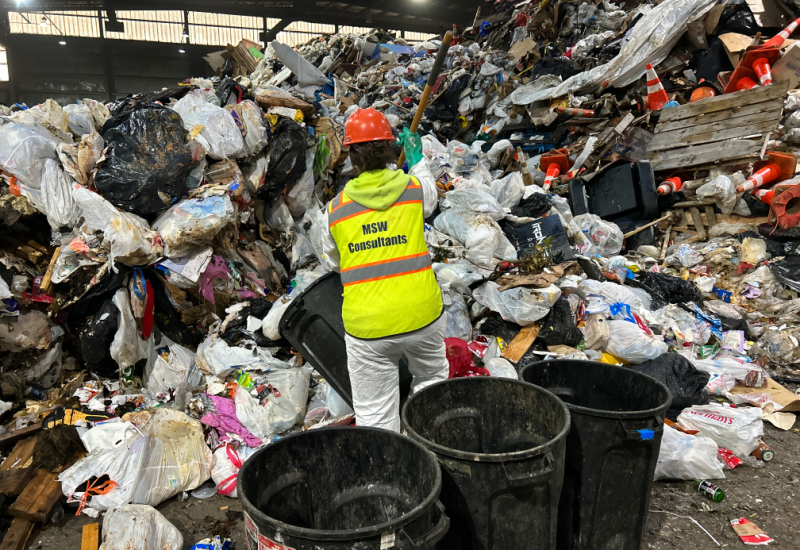Apr 05, 2024

Atlantic County Utilities Authority (ACUA) recently recruited the help of professional trash sorters to determine what is thrown away in a typical trash can. This project, also known as a waste characterization study, is a valuable tool in developing future solid waste management plans.
How It Works
The waste categorization study is performed by knowledgeable sorters with an eye for detail. The team is trained to take a statistically representative sample and record their findings. At ACUA, 55 samples of trash, officially known as municipal solid waste (MSW), were collected. The samples came from both residential and commercial sources throughout Atlantic County. The commercial trash was broken down again into casino and non-casino generated trash.
.png.aspx)
The team safely sorted through the samples and separated the items discovered into 48 categories. These included 11 types of plastic, 10 different types of paper, seven types of construction and demolition debris, five types of metals, three types of organics or food waste, three types of hazardous waste, two types of glass, electronics, and a variety of “other” items like textiles or bulky waste.
The initial study was conducted in February, and another study will be performed again during peak trash season in July.
After the hands-on analysis is completed, the team will compile and present the data showing the composition by weight and by percentage of the total waste analyzed.
Why It's Helpful
National and state statistics showcase the big picture of waste disposal. ACUA also captures its own data each time a vehicle passes through its transfer station as items are categorized and paid for by type. While these data set are helpful in providing overall statistics, they do not capture the details of what is placed in a typical trash can.
.png.aspx)
"The waste characterization study helps us to get to the nitty gritty of what's really being put into trash cans across Atlantic County," said ACUA Vice President of Solid Waste Gary Conover.
The study will show which items are being improperly thrown away as trash, such as recyclable items or construction debris. Through this activity, ACUA will further understand how much valuable product is being lost to the trash. It will also provide insight into which items the community may need additional education on.
"If we learn, for example, that recyclable plastics are being commonly thrown away in the trash, then we can refocus our education efforts," said Conover.
The study will also provide meaningful information regarding the potential energy output of our current waste makeup. This will be particularly useful as ACUA evaluates technologies that can turn waste into energy.
“Understanding our unique, local waste stream makes ACUA and Atlantic County better positioned to plan for solid waste disposal for the future," said Conover.